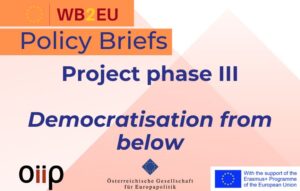
Policy Briefs of the WB2EU project phase III: Democratisation from below
Here you can download the entire 15 Policy Briefs of the third WB2EU project phase „Democratisation from below“ in one PDF. They were published between

Media and minorities in Bosnia and Herzegovina: a path towards an inclusive and democratic society, Sarina Bakić, ÖGfE Policy Brief, 26’2023
This Policy Brief presents a broader overview of some of the most significant aspects regarding the role of media in building democracy in terms of

Rebuilding democracy from below: A case for local communities in Montenegro, Nikola Mumin & Marija Popović Kalezić, ÖGfE Policy Brief, 25’2023
Montenegro has been experiencing a crisis in democracy for several years now. This Policy Brief explores the role that local communities (LCs) have and/or can

Tackling the local beyond partisan politics. Can independent lists in North Macedonia boost local democracy? Isak Missini & Dimitar Nikolovski, ÖGfE Policy Brief, 24’2023
At the local elections of 2021 in North Macedonia, eight independent groups with green politics ran for municipal councillors. The Policy Brief analyses the work

How to support democratisation in the Western Balkans? Dominic Maugeais, ÖGfE Policy Brief, 23’2023
This Policy Brief claims that the EU pre-accession process in the Western Balkans needs stronger political support for democratisation by the European Union (EU) and

Kosovo: democratising democracy, Venera Hajrullahu & Taulant Hoxha & Dren Puka, ÖGfE Policy Brief, 22’2023
Inclusive decision-making processes that prioritise citizens and their needs, allowing their voices to shape the decisions that affect them, are at the core of democratisation
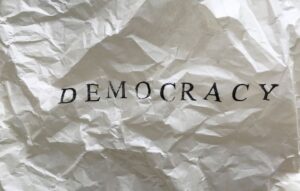
Democracy from below in Romania: how far can it get before breaking, Andrei Tiut, ÖGfE Policy Brief, 21’2023
Between 2012 and 2017, successive waves of protests brought public officials to account. Governments were overthrown, and significant pieces of legislation were overturned. In 2016,

Balancing Freedom of Expression and Democracy: The Case of the “Za Dom Spremni” Greeting in Croatia, Marin Jašić, ÖGfE Policy Brief, 20’2023
This Policy Brief explores the contentious issue of the „Za dom spremni“ greeting in Croatia, examining its historical significance, legal framework, and diverse perspectives. It
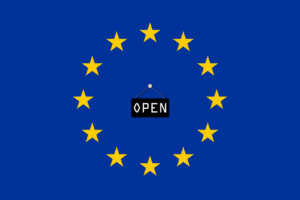
From EU ‘enlargement fatigue’ to ‘enlargement enthusiasm’? Matteo Bonomi & Irene Rusconi, ÖGfE Policy Brief, 19’2023
Eurobarometer trends show a ‘critical juncture’ in EU enlargement policy. The long-term unfavourable trends toward the admission of new members have been reversed, with EU

Convergence of the Western Balkans towards the EU: from enlargement to cohesion, Ardian Hackaj, ÖGfE Policy Brief, 18’2023
There is a gap between the six countries of the Western Balkans (WB6) and their partners in the European Union (EU) in human capital, the

Citizens vs. Elites: Symbolic Battles Over the Uses of Political Crises in Bulgaria, Anna Krasteva, ÖGfE Policy Brief, 17’2023
The Policy Brief analyses the symbolic battles between elites and citizens for framing and dominating political crises. Four crises are examined, compared, and mapped along
A missed opportunity? Civil society organisations in Greece and North Macedonia after the 2015 refugee crisis, Nikolaos Tzifakis & Anastasios Valvis, ÖGfE Policy Brief, 16’2023
When the 2015 refugee crisis broke out, civil societies in Greece and North Macedonia were featuring similar structural weaknesses, such as a lack of professionalism

Civil society organisations and their “space” in backsliding democracies, Fanni Elek & Christina Griessler, ÖGfE Policy Brief, 15’2023
The Policy Brief addresses the situation of civil society organisations (CSOs) in Hungary and Serbia by analysing the data provided by the Civil Society Organization

The role of digitalisation in transforming Western Balkan societies, Petar Mrdović, ÖGfE Policy Brief, 14’2023
Digitalisation is playing an important role in our everyday lives. It has become embedded in every aspect of our lives. The digital transformation has reshaped
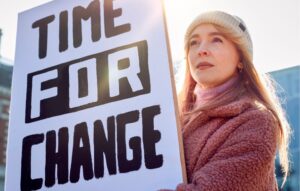
Civil society: a driver for democratisation from below in Serbia, Radomir Aleksić & Luka Milovanović & Mirjana Đorđević, ÖGfE Policy Brief, 13’2023
This Policy Brief explores the concept of „democratisation from below“ as a bottom-up approach to democracy, emphasising the active role of citizens and civil society

Environmental democracy in the Western Balkans between dependent capitalism and integration into the European Union, Nebojsa Vukadinovic, ÖGfE Policy Brief, 12’2023
Environmental issues in the Western Balkans are at the centre of civic mobilisation against the negative effects of various types of pollution. In addition, during
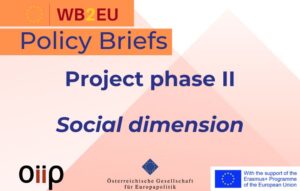
Policy Briefs of the WB2EU project phase II: Social dimension
Here you can download the entire 15 Policy Briefs of the second WB2EU project phase „Social dimension“ in one PDF. They were published between 13

Emigration from Romania: impact and legacy, Andrei Tiut & Ana Maria Teacă, ÖGfE Policy Brief, 10’2023
More than 4 million Romanians have emigrated during the 30+ years since the 1989 Revolution. They send back remittances, and when they return, they bring

Kosovo’s youth: Overcoming challenges and creating opportunities, Fiona Kelmendi, ÖGfE Policy Brief, 09’2023
Kosovo has a unique demographic and a window of opportunity for capitalising on it, which will be closed sooner than expected if no action is

Bringing sustainability to the Western Balkan region, Daniele Fattibene & Federico Castiglioni & Matteo Bonomi, ÖGfE Policy Brief, 05’2023
The Sustainable Development Goals (SDGs) are a new ambitious benchmark that the United Nations has adopted to scientifically assess the advancement made by single countries
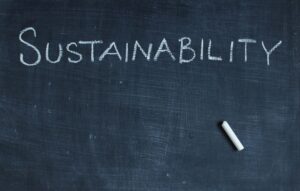
Making the EU and member states policy towards the Western Balkans socio-economically more sustainable, Dominic Maugeais, ÖGfE Policy Brief, 04’2023
This Policy Brief claims that the socio-economic policy of the European Union (EU) towards the Western Balkans is not sustainable. Labour migration from the region

Sustainable development in the Western Balkans: Is youth on board? Inva Nela & Gresa Smolica, ÖGfE Policy Brief, 03’2023
Today, the Western Balkan region suffers from a situation of fragmentation characterised by high unemployment rates especially among youth, brain drain, high migration rates, low

Local elections in Montenegro: beyond political campaigns, Nikola Mumin, ÖGfE Policy Brief, 24’2022
For years, one of the key objections of the European Commission in its annual reports on Montenegro has been the failure to hold local elections

Youth Cooperation in the Serbian-Hungarian Context, Fanni Elek & Christina Griessler, ÖGfE Policy Brief, 23’2022
The policies of the European Union (EU) regarding the enlargement process focus not only on the political elite but also try to create bottom-up processes

Digital Europeanisation in North Macedonia: slowly moving forward, Dimitar Nikolovski & Aleksandar Stojanovski, ÖGfE Policy Brief, 22’2022
Since 2019, North Macedonia has been trying to digitalise its public services and install digital wallets in accordance with Regulation (EU) No 910/2014 of the

Demographic decline of Croatia: What is to be done? Senada Šelo Šabić, ÖGfE Policy Brief, 21’2022
Over the last three decades, Croatia has been steadily losing its population. The 2021 national census results show that Croatia has a population of 3,871,833

Listening to the people: How the Green Agenda Action Plan can do better for the Western Balkans, Melika Mahmutović, ÖGfE Policy Brief, 20’2022
In October 2021 at the EU–Western Balkans Summit held during Slovenian presidency of the Council of the European Union (EU), the Green Agenda Action Plan

The Vulnerability of Women in the Labour Market in Serbia, Svetlana Stefanović & Maša Vračar, ÖGfE Policy Brief, 19’2022
Gender inequality exists today in all societies around the world, and it is rooted in the social structure and the traditional division of labour. It
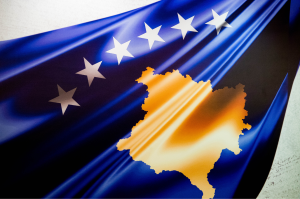
Kosovo: ending isolation, Elise Bernard & Fjollë Ibrahimi, ÖGfE Policy Brief, 18’2022
In July 2018, the European Commission confirmed that Kosovo had met the two outstanding requirements, thus fulfilling all benchmarks set out in the visa liberalisation
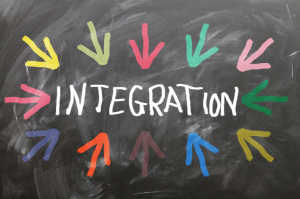
Cultural Policy in Bosnia and Herzegovina: Recognising Culture as an Integration Tool, Sarina Bakić, ÖGfE Policy Brief, 16’2022
Every cultural policy that is led by democratic principles implies, creates and implements cultural actions, which aim to provide the fulfilment of cultural needs and
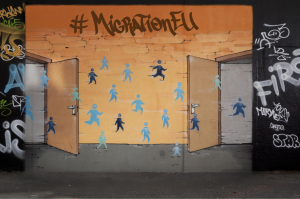
Return Migration in Bulgaria: A Policy Context of Missed Opportunities, Evelina Staykova, ÖGfE Policy Brief, 17’2022
The last census in Bulgaria shows that population has shrunk by 11.5% in a decade. Low birth rate, high death rate and migration are the
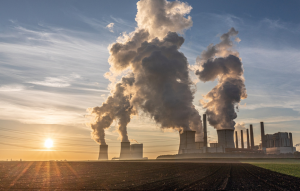
The social impact of air pollution in the Western Balkans, Nikolaos Tzifakis & Anastasios Valvis, ÖGfE Policy Brief, 15’2022
Environmental degradation is an alarming problem in the Western Balkans. Air pollution was the fourth greatest risk factor for human health globally in 2019. The
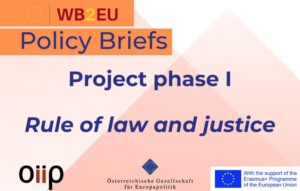
Policy Briefs of the WB2EU project phase I: Rule of law and justice
Here you can download the entire 15 Policy Briefs of the first WB2EU project phase „Rule of law and justice“ in one PDF. They were

Rule of Law in Bosnia and Herzegovina – the Transformation of the High Judicial and Prosecutorial Council, Nedžma Džananović & Sead Turčalo, ÖGfE Policy Brief, 05’2022
In its Analytical Report from 2019 and consequent Report on Bosnia and Herzegovina (BiH) 2020, the European Commission has pointed that judiciary in BiH, in
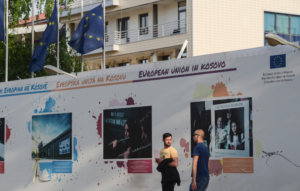
Is there hope for Kosovo’s rule of law system? Three immediate actions needed, Bardha Tahiri, ÖGfE Policy Brief, 04’2022
Starting just after the war and for more than 20 years now, Kosovo has had international community as the strongest provider of support to strengthen
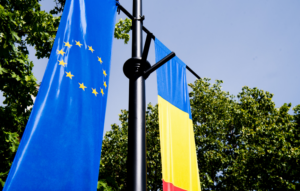
Building a constituency for rule of law. Lessons from the Romanian anti-corruption drive, Oana Popescu-Zamfir, ÖGfE Policy Brief, 03’2022
Romania’s experience is that of the most intensive push for rule of law and anti-corruption among new European Union (EU) members, given that the country
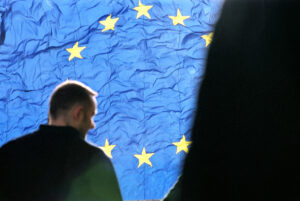
Considering EU enlargement through the prism of security cooperation, Elise Bernard & Joseph Leloup, ÖGfE Policy Brief, 01’2022
For the next six months France holds the Presidency of the Council of the European Union. One of the top priorities on its agenda will
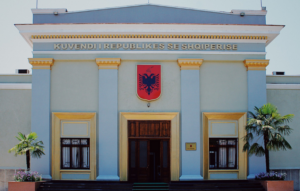
Lessons learned from the justice reform in Albania, Inva Nela, ÖGfE Policy Brief, 24’2021
Judiciary and rule of law, more specifically, is a core element for the accession negotiations with the European Union (EU). In this regard, since 2014
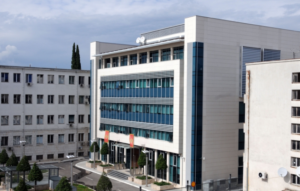
The rule of law in Montenegro between deep polarisation and an unstable majority – how to get back on track? By Nikola Mumin, ÖGfE Policy Brief, 23’2021
Although it has been negotiating EU membership for more than nine years and thus carrying out certain activities to strengthen the rule of law under
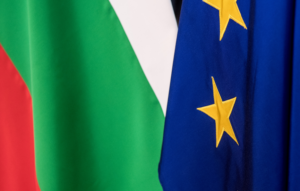
State Capture versus Contestatory Citizenship in Bulgaria, Anna Krasteva, ÖGfE Policy Brief, 22’2021
The Policy Brief argues that Bulgaria is experiencing a negative transformation, a transition from post-communism to post-democracy expressed in the transition from corruption to endemic
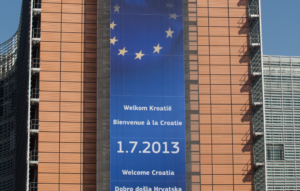
Rule of Law and Justice in Croatia after the EU accession, Nikica Kolar, ÖGfE Policy Brief, 21’2021
Every accession into political alliance is a matter of political negotiations. During the accession process Croatia advanced but did not completely execute a judicial reform

The Conditionality Regulation: A true European means to face a rule of law crisis in wider Europe and foster media freedom, Eleonora Poli & Margherita Salvia, ÖGfE Policy Brief, 20’2021
The respect of the rule of law is central to the functioning of democracies within the European institutional settings and has become even more relevant

Τhe Rule of Law and Foreign Direct Investment in the Western Balkans: The Greek Experience, Nikolaos Tzifakis & Anastasios Valvis, ÖGfE Policy Brief, 17’2021
The rule of law is positively correlated to the attainment of economic growth and sustainable development and to the attraction of Foreign Direct Investment. However,
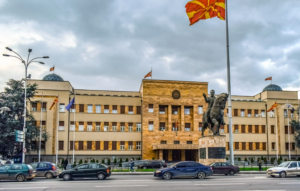
The controversy of ‘more (economic) freedom’. Can liberalisation in North Macedonia cause more problems than benefits? By Dimitar Nikolovski & Aleksandar Stojanovski, ÖGfE Policy Brief, 15’2021
In the past months, the government of North Macedonia has pushed for three policies providing for different forms of liberalisation and legalisation, all with potentially
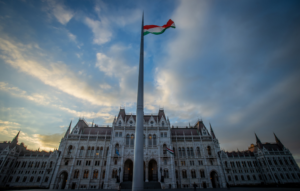
Hungary, an anti-role model for successful EU integration? By Christina Griessler & Fanni Elek, ÖGfE Policy Brief, 14’2021
Already from around 2007 onwards the European Union’s (EU) enlargement process entered a severe crisis and attempts to overcome the deadlock have failed so far.

Rule of Law and Justice – Case Serbia, Djordje Popović, ÖGfE Policy Brief, 13’2021
Serbia in the year 2021 is a captured state with institutions completely under control of one party. With the ruling elites involved in serious cases
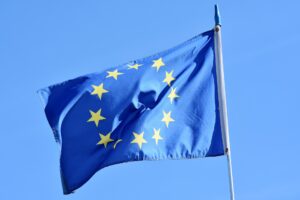
What can the Slovenian Presidency of the Council of the European Union do for the Western Balkans? By Faris Kočan & Marko Lovec, ÖGfE Policy Brief, 12’2021
Within the Slovenian Presidency of the Council of the European Union several priorities are relevant from the perspective of the EU’s Western Balkans strategy. The

Countering the Rule of Law Backsliding in the Western Balkans, Katrin Böttger & Dominic Maugeais, ÖGfE Policy Brief, 11’2021
Seventeen years after the big round of enlargement of the European Union and with the Conference on the Future of Europe up and running, the

